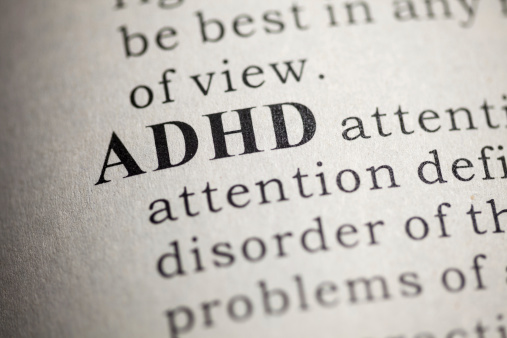
Gender variance – the desire to be another gender – seems more likely in children with autism spectrum disorders (ASD) or attention deficit hyperactivity disorder (ADHD), according to research published in the Archives of Sexual Behavior.
The study analyzed a group of children between the ages of 6 and 18. The children had ASD, ADHD, or another type of neurodevelopmental disorder.
The researchers found that when compared to children without ASD or ADHD, children on the autism spectrum were over seven times more likely to have gender variance. Children with ADHD were over six times more likely.
The children with gender variance tended to have higher rates of depression and anxiety, too.
The study was led by Dr. John Strang of the Children’s National Medical Center in Washington DC.
“In ADHD, difficulties inhibiting impulses are central to the disorder and could result in difficulty keeping gender impulses ‘under wraps’ in spite of internal and external pressures against cross-gender expression,” Dr. Strang said in a press release.
He added, “Children and adolescents with autism spectrum disorders may be less aware of the social restrictions against expressions of gender variance and therefore less likely to avoid expressing these inclinations. It could also be theorized that excessively rigid or ‘black and white’ thinking could result in such a child’s rigidly interpreting mild or moderate gender nonconforming inclinations as more intense or absolute.”
To learn more about gender identity in children, please click here.
Resources
Archives of Sexual Behavior
Strang, John F., et al.
“Increased Gender Variance in Autism Spectrum Disorders and Attention Deficit Hyperactivity Disorder”
(Abstract. March 2014)
http://link.springer.com/article/10.1007/s10508-014-0285-3
HealthDay
Preidt, Robert
“Autism, ADHD Tied to Gender Concerns in Some Kids: Study”
(March 12, 2014)
http://consumer.healthday.com/kids-health-information-23/attention-deficit-disorder-adhd-news-50/briefs-emb-3-12-gender-identity-issues-adhd-autism-archives-of-sexual-behavior-release-batch-1179-685744.html
Springer
“Wishing to be another gender: links to ADHD and autism spectrum disorders”
(Press release. March 12, 2014)
http://www.springer.com/about+springer/media/springer+select?SGWID=0-11001-6-1457451-0
You may also be interested in...
Other Popular Articles

What Is Jelqing, and Does It Actually Work?
The term “jelqing” refers to a set of penis stretching exercises that some believe can make the penis bigger. Although the practice has gained attention and popularity in blogs and internet forums in recent years, there is no scientific evidence that it is an effective way to permanently increase the size of one’s penis. In fact, in some cases, jelqing may actually cause damage to the penis, so it is a good idea to get all the facts before setting off to try it.

What Is Sensate Focus and How Does It Work?
Sensate focus is a technique used to improve intimacy and communication between partners around sex, reduce sexual performance anxiety, and shift away from ingrained, goal-oriented sexual patterns that may not be serving a couple.

What Is the Average Penis Size?
If you have ever wondered how your penis compares to others in terms of size, you are not alone. Many men are curious to know how their penises stack up compared to the average. Unfortunately, general curiosity can sometimes give way to full-on obsession and anxiety about penis size. This can be an unhealthy and often unnecessary fixation, especially because most men who think their penises are too small have perfectly normal-sized penises.

Can Sex Reduce Menstrual Cramps?
The SMSNA periodically receives and publishes ‘guest editorials.’ The current article was submitted by Mia Barnes, a freelance writer and researcher who specializes in women's health, wellness, and healthy living. She is the Founder and Editor-in-Chief of Body+Mind Magazine.
Having sex while you experience menstrual cramps is healthy and can provide significant benefits. While it might not be the first activity that comes to mind when your PMS or period cramping begins, many people enjoy sex to reduce menstrual cramps, experience increased pleasure and benefit from other advantages. Learn more about having sex while menstrual cramps are happening and how it can help your body.

What Is Edging and Why Do People Do It?
Edging is the practice of stopping sexual stimulation before reaching orgasm to prolong a sexual experience. The term stems from the concept of approaching the metaphorical “edge” of orgasm but stopping before going over the edge.

The Effect of Regular Aerobic Exercise on Erectile Function
Erectile dysfunction (ED) is the inability to achieve or maintain an erection sufficient for satisfactory sexual activity. As men get older, their erectile functioning may naturally decline due to changes in testosterone levels, cardiovascular functioning, and the potential development of other chronic medical conditions that become more common with age.

